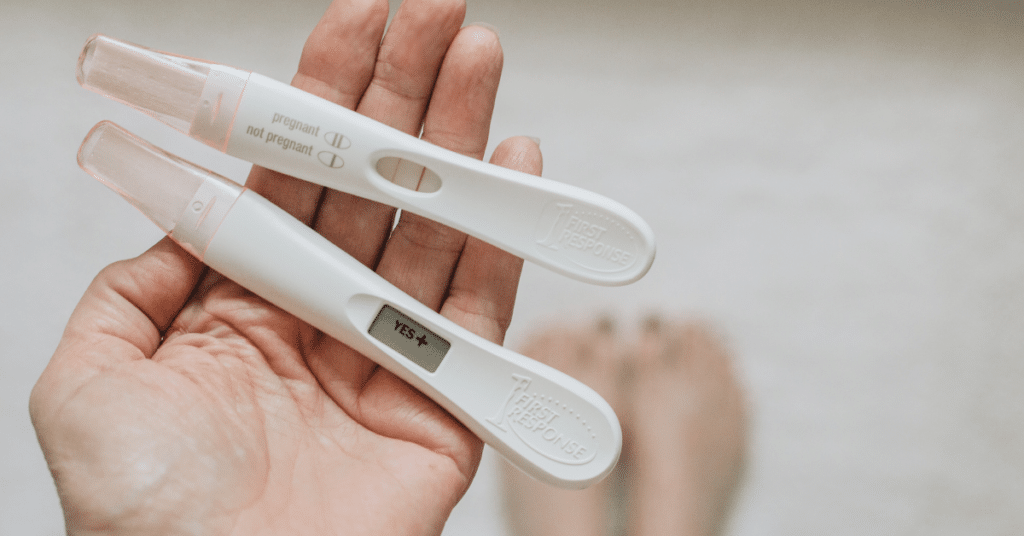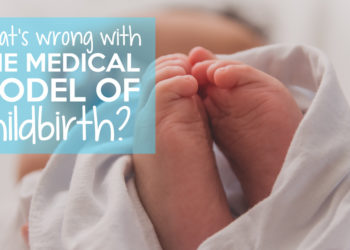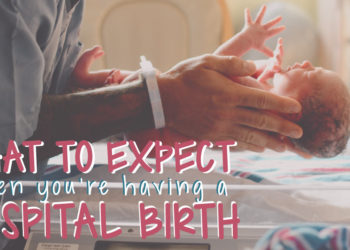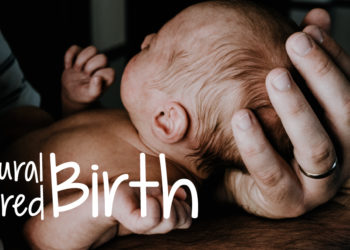Welcome to the amazing journey of pregnancy! This initial phase is incredibly significant for the expectant mother and the developing fetus. Understanding what happens in the first month of pregnancy helps prepare you for the exciting journey ahead.
Overview of Fetal Development
During the first month, the fertilized egg implants into the uterine lining, beginning embryonic development. Although the baby is still just a tiny cluster of cells, this period sets the stage for critical developmental milestones.
Recognizing Early Symptoms
Identifying early symptoms is essential for expectant mothers. These signs can vary but often include:
- Missed periods
- Fatigue
- Bloating
- Breast tenderness
Recognizing these symptoms early can prompt timely medical consultations and ensure a healthy pregnancy.
Key Takeaway
Expect a blend of physical and emotional changes during this time. From hormonal fluctuations causing mood swings to physical discomforts like nausea, understanding what to expect in the first month can help manage these changes more effectively.
Understanding the Pregnancy Timeline
The concept of gestational age is essential for tracking pregnancy progress. It’s calculated from the first day of your last menstrual period (LMP), even though conception typically occurs about two weeks later. This method helps healthcare providers estimate the due date and monitor the baby’s development milestones.
The First Trimester: A Crucial Phase
The first trimester spans from week 1 to week 12 and is a significant growth and change for both mother and baby. During this time:
- Weeks 1-4: The fertilized egg implants into the uterine lining, beginning the transformation journey.
- Weeks 5-8: Major organs develop, including the heart, brain, and spinal cord.
- Weeks 9-12: Vital systems continue to form, and by the end of this trimester, the fetus has all its basic organs and structures in place.
Understanding these stages allows expectant mothers to grasp better what’s happening inside their bodies and why early prenatal care is so critical.
Common Pregnancy Symptoms in the First Month
Missed Period
One of the earliest and most common pregnancy symptoms is a missed period. This often prompts many women to take a pregnancy test. If you’ve been tracking your menstrual cycle and notice that your period is late, it’s natural to wonder if you might be pregnant.
- Gestational Age Calculation: Since pregnancy is typically measured from the first day of your last menstrual period (LMP), a missed period can be one of the first conception indicators.
- Pregnancy Tests: Home pregnancy tests are usually reliable if taken after a missed period and can provide early confirmation. These tests work by detecting the hormone human chorionic gonadotropin (hCG) in your urine, produced after a fertilized egg attaches to the lining of the uterus.
Understanding this symptom helps you recognize early pregnancy signs and take appropriate steps for prenatal care.
Fatigue and Hormonal Changes
Fatigue is one of the earliest symptoms of pregnancy in the first month. Increased levels of progesterone play a significant role here. This hormone, crucial for maintaining pregnancy, can tire you. Expectant mothers might need more rest or find daily tasks more exhausting than usual.
Other symptoms may also occur during this time, influenced by hormonal changes adjusting to the new state of pregnancy.
Physical Discomforts: Bloating and Breast Changes
In the early stages there can be a range of early pregnancy signs, with bloating and breast changes being common symptoms.
Bloating
Bloating often occurs due to hormonal fluctuations that cause the digestive system to slow down, leading to gas buildup and a feeling of fullness.
Breast Changes
Breast tenderness is another symptom many women experience. Hormonal changes increase blood flow and alter breast tissue, making them feel swollen, sore, or unusually sensitive.
It’s important to note that while these are common pregnancy symptoms, not everyone will experience them.
Nausea and Morning Sickness
While morning sickness is commonly associated with later stages of pregnancy, some women may experience it as early as the first few weeks. This early onset of nausea can be one of the early pregnancy signs that catch you off guard. Not everyone will experience morning sickness during early pregnancy, but if you do, it can range from mild queasiness to more intense bouts of nausea.
Increased Urination and Mood Swings
Early pregnancy signs can bring about a range of physical and emotional changes. One such common pregnancy symptom is increased urination. This happens as the body ramps up blood flow, causing the kidneys to produce more urine.
Another early symptom includes mood swings influenced by hormonal fluctuations. Emotional ups and downs are typical, with feelings ranging from joy to anxiety. These pregnancy symptoms highlight the body’s adjustment process.
Not everyone will experience these symptoms, but understanding them helps navigate this transformative time.
Food Cravings or Aversions
Early pregnancy signs often include food cravings and aversions, which can be pretty pronounced for some women. Hormonal changes affect taste sensitivity, leading to a sudden desire for certain foods or an aversion to others. You might yearn for pickles at odd hours or be unable to stand the smell of your favorite coffee. These common pregnancy symptoms are part of the body adapting to the new life growing inside you.
Physical and Emotional Changes During Early Pregnancy
During the early stages of pregnancy, you might notice several physical changes. One common change is the darkening of areolas due to hormonal shifts preparing your body for breastfeeding. Increased basal body temperature is another sign that your body is working hard to support the developing fetus.
Emotionally, expect a rollercoaster. Hormonal changes can lead to mood swings, making you feel ecstatic one moment and tearful the next. It’s completely normal to experience a range of emotions during this time.
Physical changes:
- Darkening areolas
- Increased basal body temperature
Emotional responses:
- Mood swings
- Feelings of anxiety or joy
Understanding these changes helps recognize that they are a natural part of the first month of pregnancy.
Importance of Prenatal Care from the Start
Early prenatal care sets the foundation for a healthy pregnancy journey. It’s crucial for expectant mothers to schedule an initial appointment with their healthcare provider as soon as they suspect they’re pregnant. This first visit often includes:
- Medical history review: Understanding your health background helps identify any potential risks.
- Screenings and tests: Blood tests, urine tests, and ultrasounds to confirm the pregnancy and check for any underlying conditions.
- Lifestyle advice: Guidance on diet, exercise, and avoiding harmful substances.
Taking Prenatal Vitamins: A Key Component for Fetal Development
One of the most significant aspects of early prenatal care is starting a regimen of prenatal vitamins. Ideally, women should begin taking these vitamins before conception. The benefits include:
- Folic acid: Essential in preventing neural tube defects like spina bifida. Experts recommend at least 400 micrograms daily.
- Iron: Supports the development of the placenta and fetus while preventing maternal anemia.
- Calcium and Vitamin D: Important for building strong bones and teeth for both mother and baby.
Taking these vitamins consistently ensures that the mother’s body has all the necessary nutrients to support the fetus’s development, laying a healthy foundation for the months ahead.
Understanding these aspects of prenatal care can significantly improve maternal and fetal health. Early involvement with a healthcare provider and proper nutrition through prenatal vitamins create an optimal environment for your baby’s growth and development.
Lifestyle Precautions for a Healthy Pregnancy Journey
Staying mindful of lifestyle choices is crucial during the first weeks of pregnancy. Expectant mothers should be aware of the following recommendations to ensure both their health and that of their baby:
- Avoid harmful substances: Refrain from alcohol, tobacco/nicotine, and certain medications unless prescribed by a healthcare provider. These substances can pose significant risks to fetal development.
- Balanced diet: Focus on consuming a variety of nutrient-rich foods. Add fruits, vegetables, whole grains, lean proteins, and healthy fats to your meals. This balanced approach supports both maternal health and the baby’s growth.
Consult with healthcare providers about any lifestyle changes or precautions. Midwife360 offers comprehensive pre-and postnatal care to guide mothers through these early stages with professional support.
When to Seek Medical Attention During Early Pregnancy
Recognizing warning signs early on in pregnancy is crucial to ensure maternal and fetal health. Some symptoms demand immediate medical attention:
- Heavy bleeding: This can be a sign of a miscarriage or an ectopic pregnancy.
- Severe abdominal pain: Intense pain could indicate an ectopic pregnancy or other severe conditions.
Other symptoms that should prompt a call to your healthcare provider include:
- Persistent dizziness or fainting
- Severe headaches
- Blurred vision
- Fever over 100.4°F (38°C)
- Painful urination
Listen to your body. If anything feels off or unusual, don’t hesitate to seek guidance and reassurance from your healthcare provider.
FAQs About The First Month of Pregnancy
In the first month of pregnancy, common symptoms may include a missed period, fatigue due to hormonal changes, bloating and breast tenderness, nausea or morning sickness, increased urination, mood swings, and food cravings or aversions. However, not everyone will experience these symptoms.
Understanding early pregnancy symptoms is crucial for expectant mothers as it helps them recognize the signs of pregnancy early on. This awareness allows for timely prenatal care and prepares them for the physical and emotional changes accompanying this significant life stage.
Avoid harmful substances such as alcohol and tobacco/nicotine during the first month of pregnancy. Maintaining a balanced diet rich in essential nutrients is also crucial for the mother and baby’s health.
You should seek medical attention if you experience symptoms such as heavy bleeding or severe abdominal pain. It is essential to consult a healthcare provider if any unusual or alarming signs arise during this time.
Gestational age is calculated from the first day of your last menstrual period and is crucial for tracking your pregnancy progress. It helps you determine the expected due date and understand the fetal development stages throughout your pregnancy.
Prenatal vitamins are essential before conception and during pregnancy. They provide necessary nutrients like folic acid, which plays a critical role in preventing neural tube defects. Early prenatal care often includes recommendations for taking these vitamins to support fetal development.

















